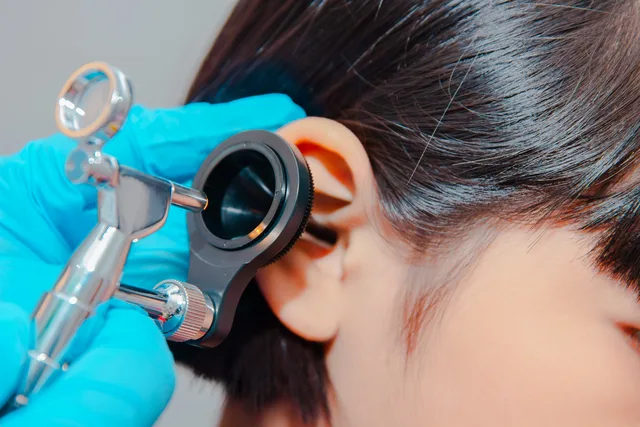Ear, Nose, and Throat (ENT) issues are among the most common medical conditions affecting people of all ages. They can range from mild infections to chronic disorders that interfere with breathing, hearing, and daily comfort. Recognising the symptoms early and consulting an ENT specialist can prevent complications and ensure faster recovery.
This blog explains the common ENT problems and symptoms you should never ignore and how timely diagnosis at Horizon Prime Hospital can help you breathe, hear, and live better.
Understanding ENT Health
The ear, nose, and throat are closely connected structures. A problem in one area often affects the others. ENT specialists diagnose and treat conditions related to:
- Hearing and balance (Ear)
- Breathing and sinus function (Nose)
- Speech, swallowing, and voice (Throat)
Regular check-ups and early symptom recognition can prevent minor infections from progressing into serious conditions.
Common ENT Problems and Their Symptoms
1. Ear Infections
Symptoms:
• Ear pain or pressure
• Fluid discharge from the ear
• Temporary hearing loss
• Fever or irritability (in children)
• Tinnitus (ringing sound in the ear)
Ear infections are common in children but can affect adults as well. They often occur after colds, allergies, or sinus infections when bacteria or viruses reach the middle ear.
2. Hearing Loss
Symptoms:
• Difficulty understanding conversations
• Frequently asking people to repeat themselves
• Turning up the TV or phone volume
• Feeling of fullness in the ear
Hearing loss may result from wax buildup, ear infections, aging, or prolonged exposure to loud sounds. An ENT specialist can perform hearing tests to identify the cause and suggest suitable treatment or hearing aids.
3. Sinusitis (Sinus Infection)
Symptoms:
• Facial pain or pressure
• Nasal congestion and blockage
• Thick yellow or green nasal discharge
• Loss of smell and taste
• Headache or tooth pain
Sinusitis occurs when sinus cavities become inflamed due to infection or allergies. Chronic sinusitis lasting more than 12 weeks may require imaging or surgical intervention to restore airflow.
4. Allergic Rhinitis
Symptoms:
• Sneezing and nasal congestion
• Runny or itchy nose
• Watery eyes
• Post-nasal drip
• Fatigue or headaches
Allergies can severely impact quality of life if not managed. ENT specialists can perform allergy testing and recommend treatment options, including antihistamines or immunotherapy.
5. Tonsillitis
Symptoms:
• Sore throat and difficulty swallowing
• Swollen tonsils with white patches
• Fever and bad breath
• Hoarse voice or muffled speech
Tonsillitis is a common throat infection caused by viruses or bacteria. Chronic or recurrent infections may require a tonsillectomy to prevent future episodes.
6. Voice and Throat Disorders
Symptoms:
• Persistent hoarseness
• Throat pain or lump sensation
• Difficulty swallowing
• Chronic cough
These symptoms may result from vocal cord strain, infections, acid reflux, or even early signs of throat cancer. If hoarseness lasts more than two weeks, it is essential to consult an ENT specialist.
7. Sleep Apnea and Snoring
Symptoms:
• Loud snoring
• Gasping or choking during sleep
• Daytime fatigue
• Morning headaches
• Difficulty concentrating
Obstructive sleep apnea occurs when airway tissues collapse during sleep, interrupting breathing. ENT specialists evaluate airway structure and may suggest lifestyle changes, CPAP therapy, or surgical options.
8. Nasal Polyps
Symptoms:
• Persistent nasal blockage
• Reduced sense of smell
• Runny nose and post-nasal drip
• Frequent sinus infections
Nasal polyps are non-cancerous growths that obstruct nasal passages. They can be managed through medications or endoscopic sinus surgery.
9. Vertigo and Balance Disorders
Symptoms:
• Dizziness or spinning sensation
• Loss of balance
• Nausea and vomiting
• Difficulty walking straight
Vertigo is often linked to inner ear disorders such as benign paroxysmal positional vertigo (BPPV) or Meniere’s disease. ENT specialists perform balance tests to determine the exact cause and prescribe targeted therapies.
10. Ear Wax Blockage
Symptoms:
• Fullness or pressure in the ear
• Reduced hearing
• Ringing or discomfort
• Dizziness in severe cases
Though often ignored, earwax buildup can lead to hearing issues or infections. Safe removal by an ENT specialist prevents damage to the ear canal.
Ignoring these symptoms can result in chronic infections, hearing damage, or airway obstruction.
At Horizon Prime Hospital, Thane, the Department of ENT offers comprehensive care for ear, nose, and throat disorders. The hospital provides advanced diagnostic tools like nasal endoscopy, audiometry, and imaging to identify and treat both common and complex ENT conditions.




